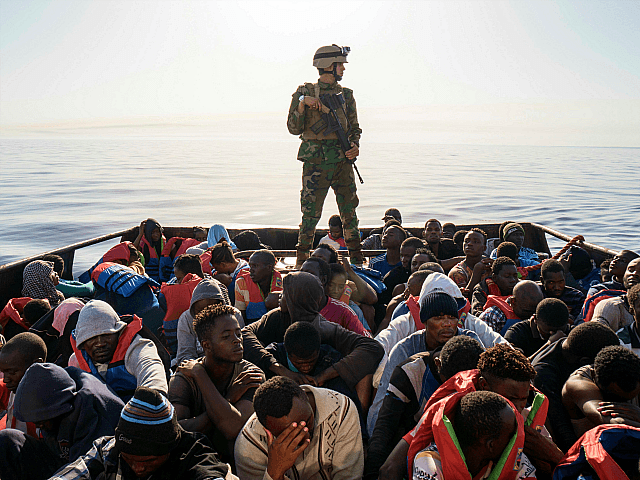Between Monday and Tuesday, the Libyan Coast Guard reportedly rescued 611 migrants aboard several dinghies off the coast and took them back to the African mainland.
Along with the Libyan search and rescue operation, an Italian vessel, following indications from the Libyan Coast Guard, rescued 108 migrants aboard a rubber dinghy and delivered them back to the port of Tripoli. The vessel, called La Asso 28, was a support boat for an oil platform.
Italian mainstream media have echoed complaints of NGOs claiming that in taking migrants back to Libya the Italian vessel would have violated international law that guarantees the right to asylum and does not recognize Libya as a safe haven.
In recent weeks, a spokesman for the Council of Europe had stated that “no European ship can bring migrants back to Libya because it is contrary to our principles.”
Twenty days ago, another ship supporting an oil rig, the Vos Thalassa, after rescuing a group of migrants, was preparing to deliver them to a Libyan patrol boat when an attempt to revolt among the migrants convinced the commander to reverse the route and ask the help of the Italian Coast Guard. The migrants were loaded aboard the ship Diciotti and taken to Trapani, Sicily, after the intervention of the President of the Republic Sergio Mattarella.
On the contrary, Deputy Prime Minister Matteo Salvini has declared Tuesday’s operation to be a victory for efforts to curb illegal immigration. The decision to take migrants back to Africa rather than transporting them to Europe reflects an accord between Italy and Libya that has greatly reduced the numbers of African migrants reaching Italian shores.
Commenting on the news, Mr. Salvini tweeted: “The Libyan Coast Guard has rescued and taken back to land 611 immigrants in recent hours. The NGOs protest and the traffickers lose their business? Great, this is how we make progress,” followed by hashtags announcing “closed ports” and “open hearts.”
Parliamentarian Nicola Fratoianni of the left-wing Liberi and Uguali (Free and Equal) party and secretary of the Italian Left, presently aboard the Spanish NGO ship Open Arms, denounced the move.
“We do not yet know whether this operation was carried out on the instructions of the Italian Coast Guard, but if so it would be a very serious precedent, a real collective rejection for which Italy and the ship’s captain will answer before a court,” he said.
“International law requires that people rescued at sea must be taken to a safe haven and the Libyan ports, despite the mystification of reality by the Italian government, cannot be considered as such,” he added.
The United Nations immigration office (UNHCR) has threatened Italy for the incident involving the 108 migrants taken to Tripoli, insisting that Libya is not a safe port and that the episode could represent a breach of international law.




